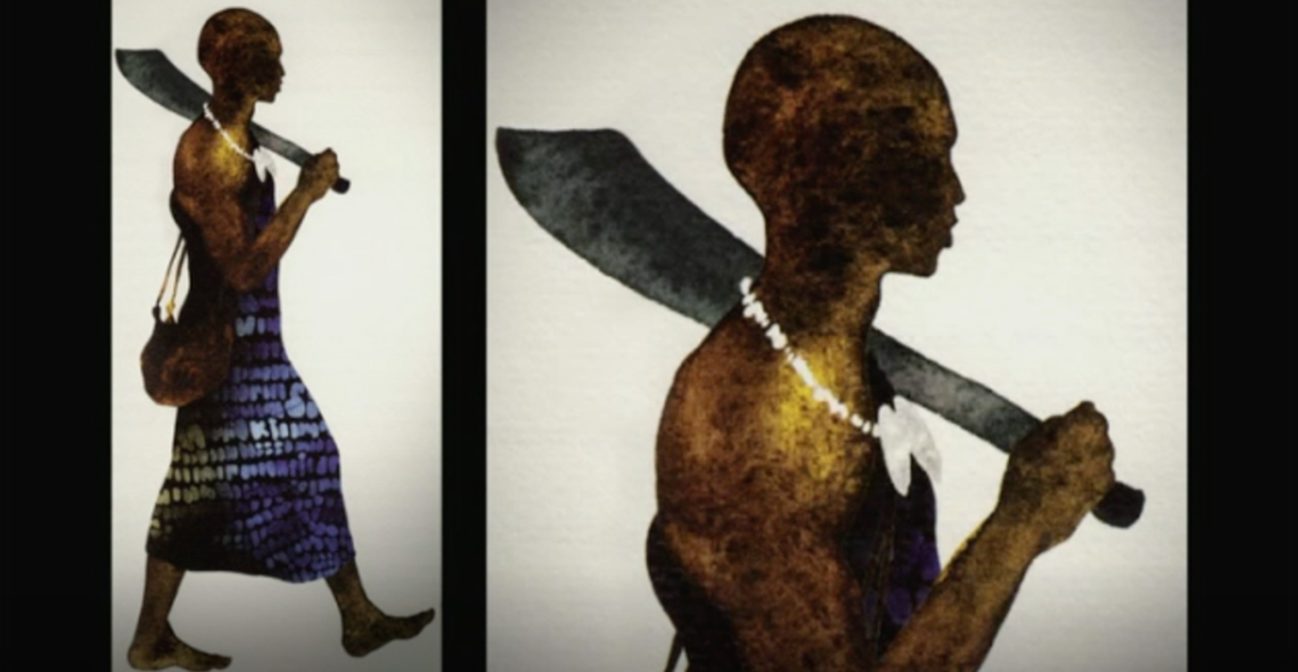Join us for conversations that inspire, recognize, and encourage innovation and best practices in the education profession.
Available on Apple Podcasts, Spotify, Google Podcasts, and more.

An excerpt from Things Fall Apart, by Chinua Achebe
Okonkwo on the death of his adopted son
“Okonkwo ruled his household with a heavy hand. His wives, especially the youngest, lived in perpetual fear of his fiery temper and so did his little children. Perhaps down in his heart Okonkwo was not a cruel man, but his whole life was dominated by fear, the fear of failure and of weakness.
As a man who cleared his throat drew up and raised his machete, Okonkwo looked away, he heard the blow. The pot fell and broke in the sand, he heard Ikemefuna cry, “My father! They’ve killed me!” as he ran towards them. Dazed with fear, Okonkwo drew his machete and cut him down.”

Osonye Tess Onwueme
“Okonkwo was always trying to prove to himself, or to the world outside him, and to his society, that he was not going to be a failure like his father. It’s like he has an agenda to embody that masculine value that the Igbo man was respected for, to show those principles of manhood.”

Chuck Mike
“If you consistently believe that you have to ‘be a man,’ you don’t handle your home affairs well. Rather than reason with his wives over matters where conflict evolves, Okonkwo beats them.”

David Damrosch
“The tensions of traditional life come to a head about a third of the way through the book, when disease spreads in the village and an oracle decrees that someone is at fault and must be sacrificed. The choice falls upon a character named Ikemefuna, who is an adopted son within Okonkwo’s own family.”

Kwame Anthony Appiah
“Ikemefuna is interesting because he is the character through whom we learn that Okonkwo has the capacity for gentleness and love and that it’s because of his obsession with not being seen to have that capacity that he does things that are manly but bad.”

Chuck Mike
“Ikemefuna was given to the village because of a dispute which had happened with another village. And he was under Okonkwo’s care, and Okonkwo became fond of him and [Ikemefuna] became close to Okonkwo’s son, Nwoye. But Okonkwo, again having to prove that he’s a man, ends up being the person who actually takes Ikemefuna’s life.”

David Damrosch
Achebe’s complex portrayal of Okonkwo is built up through juxtaposed scenes. The shocking episode of the killing of Ikemefuna is balanced, two chapters later, by the scene in which Okonkwo saves the life of his favorite daughter Ezinma, only surviving child of his wife Ekwefi. If Okonkwo participates in the killing of his foster-son for fear of being thought unmanly, in saving Ezinma—whom he loves so much that he wishes she’d been a boy—he displays his perfect mastery of traditional customs, even a maternal tenderness equaling Ekwefi’s. Achebe offers little commentary, but links the chapters imagistically through such elements as the pots that figure prominently in both scenes—the pot of palm wine that Ikemefuna carries and that breaks as he’s killed, and then the healing pot of medicine that Okonkwo administers to his daughter. Through such juxtapositions, Okonkwo becomes a richer figure than a man simply obsessed with outdoing his ne’er-do-well father. He rejects the half-measures proposed by his friend Obierika (who would have accepted the killing of his own son, but would have soothed his conscience by not participating in the killing), even as he rejects the fatalism of Ekwefi, who has already lost eight children and assumes that her daughter is now fated to die as well. In these scenes, Okonkwo comes to embody the fullest strengths and weaknesses of his society.